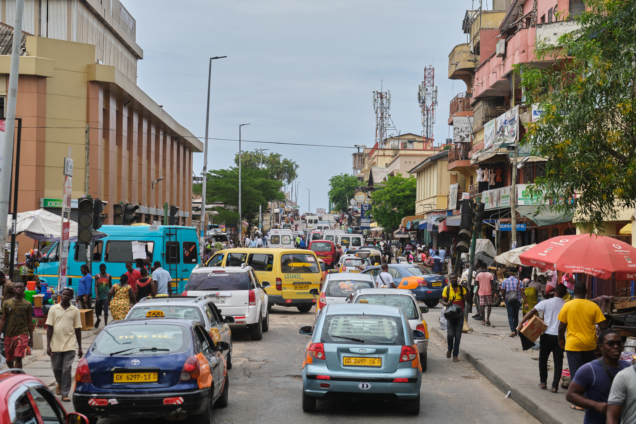
Audio By Carbonatix
Data from the Ghana Statistical Service reveals that nine out of the 261 district in Ghana, account for about 10 percent of the illiterate population. This is based on data from the 2021 Population and Housing Census, the statistical service emphasized.
According to the Statistical service, four of the nine districts are in the Northern Region, two in the North East Region, and one each in the Savannah, Volta, and Upper East regions.
The number of illiterates in districts is led by the Tamale Metropolitan Assembly, followed by, Nanumba North Municipal, East Mamprusi Municipal, Sagnarigu Municipal, Gushegu Municipal, West Mamprusi Municipal, Central Gonja, Ketu South Municipal, and Bawku West.

The Districts in total have 822,259 persons 6 years and older who are not literate and thus cannot read and write with understanding in any language. The total number of illiterates in Ghana is about 8 million people accounting for about 26% of the entire Ghanaian population. In simple terms one in four persons in Ghana is illiterate.

The details of the release also shows that one in five districts (56 out 261) in Ghana have at least half of the population 6 years and older being illiterates. In terms of percentages, the Karaga district had the highest rate of illiteracy with a rate of 81.0% followed by the Gushegu Municipal and North East Gonja districts with (80.7%), and (80.3%) rates of illiteracy respectively.
The data indicates that the Northern part of Ghana has the highest illiteracy rates as the section contains most of the districts with rate more than half.

The districts with the lowest illiteracy rates however seen in Greater Accra and the Ashanti regions with rates as low as 5.9%.
Illiteracy and Impacts
According to the United Nations, illiteracy not only limits the full development of individuals and their participation in society, but has repercussions throughout life, affecting a person’s family environment, restricting access to the benefits of development, and hindering the enjoyment of other human rights. They explain that, the impact of illiteracy can be divided into health, education, economics and social integration and cohesion.
Illiteracy among adults increases present and future socioeconomic vulnerability, and is a significant factor in the reproduction of such vulnerability through children.
Latest Stories
-
Kusaal Wikimedians take local language online in 14-day digital campaign
42 minutes -
Stop interfering in each other’s roles – Bole-Bamboi MP appeals to traditional rulers for peace
58 minutes -
Livestream: President Mahama addresses nation in New Year message
1 hour -
Industrial and Commercial Workers’ Union call for strong work ethics, economic participation in 2026 new year message
3 hours -
Crossover Joy: Churches in Ghana welcome 2026 with fire and faith
3 hours -
Traffic chaos on Accra–Kumasi Highway leaves hundreds stranded as diversions gridlock
3 hours -
Luv FM Family Party in the Park: Hundreds of families flock to Luv FM family party as more join the queue in excitement
4 hours -
Failure to resolve galamsey menace could send gov’t to opposition – Dr Asah-Asante warns
4 hours -
Leadership Lunch & Learn December edition empowers women leaders with practical insights
4 hours -
12 of the best TV shows to watch this January
4 hours -
All-inclusive Luv FM Family Party underway with colour, music, and laughter as families troop in to Rattray Park
5 hours -
Jospong Group CEO, wife support over 5,000 Ghanaians with food, cash on New Year’s Day
6 hours -
Life begins at 40: A reflection on experience and leadership
7 hours -
Maresca leaves Chelsea after turbulent end to 2025
7 hours -
NPP still hurting after 2024 loss – Justin Kodua
7 hours

